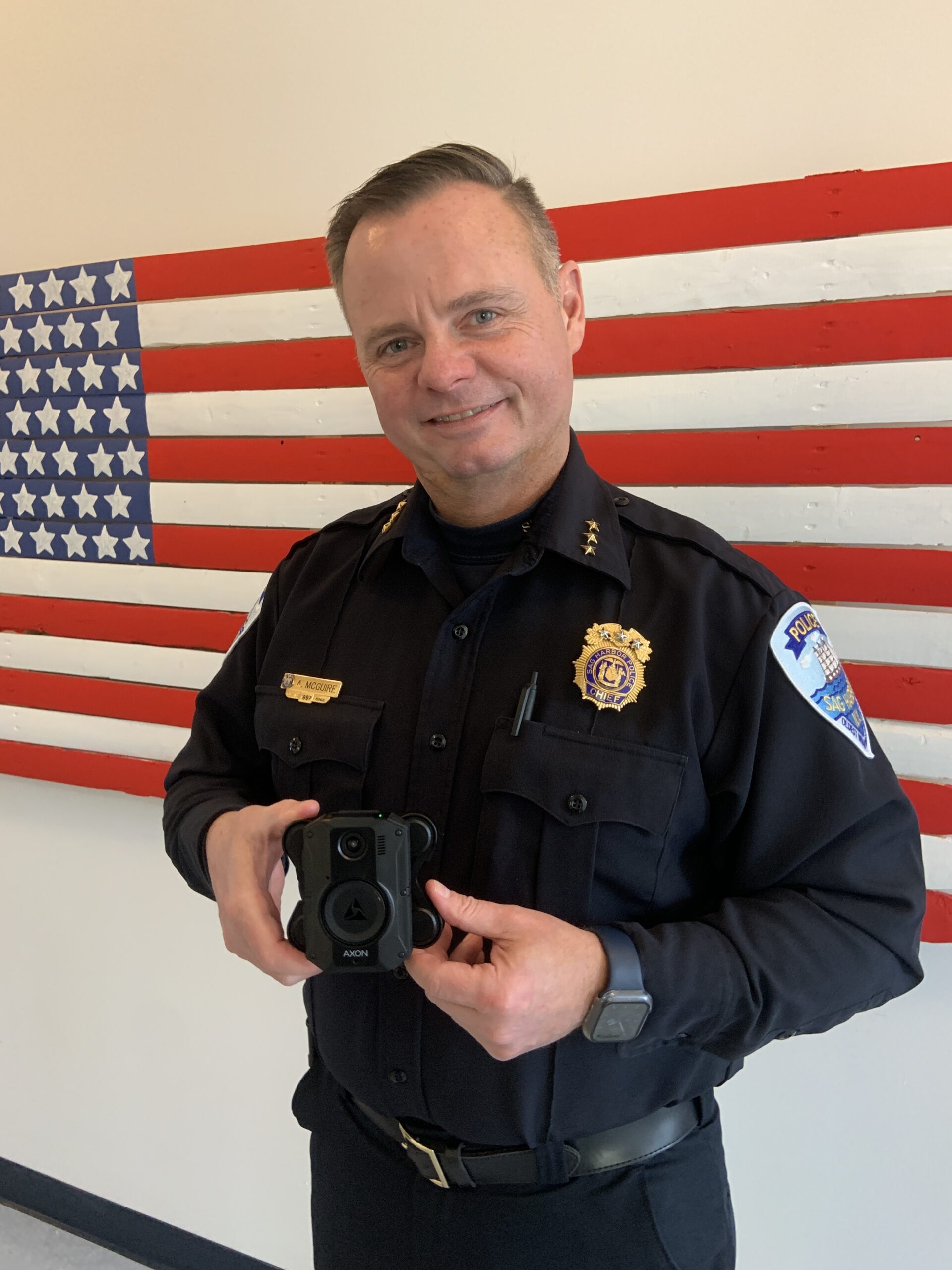
The Sag Harbor Village Police Department will join others in the region in equipping officers with body cameras in the coming months.
Police Chief Austin J. McGuire said this week that the department had received a $32,000 state grant that he hoped would cover the purchase of 16 cameras to go with another five cameras the department has already obtained through a leasing program offered by the Axon Corporation, which was formally known as Taser for another of its products, the stun guns employed by many police departments.
“We are the only police department on the East End that does not have anything — body cams or car cams,” McGuire said this week. “This is not the way of the future, it’s the way of the times.”
Body cameras have become recommended equipment for police departments in the wake of the killing by Minneapolis police of George Floyd in 2020 and the New York State effort to reform policing.
McGuire said the department is putting the finishing touches on a policy for how the cameras are to be used by officers in the field. “We’ll go over when to turn them on and when they are not needed,” he said. “Basically, they will be on any time an officer is dealing with the public.”
The chief said he hopes the cameras can be deployed by mid-May, although he cautioned many departments across the state had received funding for the equipment, so there is the possibility shipments may be delayed.
He said the Sag Harbor Police Benevolent Association had signed off on officers wearing the devices. Unlike with some departments, officers will not receive a stipend for agreeing to use the equipment.
The cameras come with charging stations and a cloud service to automatically save the video they record, eliminating what could be a cumbersome administrative duty for an officer at the end of the shift.
McGuire said some may ask why a small department in a seemingly peaceful village would need body cameras. “We have nothing to hide — and never have,” he said, while adding there are occasionally questions of how an arrest is handled.
He pointed to one case in 2018 when a woman who had been asked to leave a lecture at a restaurant in the village struggled with officers trying to remove her. A bystander recorded the incident on a cellphone video.
“Had that not been caught on someone else’s video, that could have led to an expensive legal issue,” he said.
The chief said he would also like to equip the village’s staff of traffic-control officers with the cameras. With a nod to the verbal abuse some of them receive from irate drivers, upset over having received parking tickets, McGuire quipped, “Can you imagine the video we could put together at the end of the summer?”